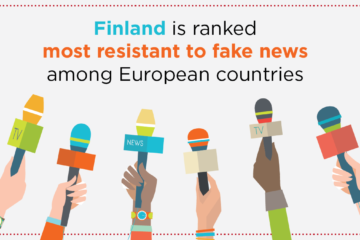New Zealand Continues Vocational Ed Reforms
New Zealand’s changes to vocational education, announced at the end of last year, try to create a unified, equitable vocational education system that ties together education and industry. To do so, the government will create a network of regional vocational providers (called Te Pūkenga from a Māori phrase about strength and growth) by bringing together pre-existing polytechnic and industry training organizations. The regional centers will provide classroom, workplace, and on-the-job training. Industry groups, Māori leaders and researchers will advise the new vocational education system to make sure it meets both changing workforce needs and the needs of all learners, particularly those that have been traditionally underserved. Read more about the Reform of Vocational Education (RoVE) program on the Tertiary Education Commission website.

Ontario Court Rules New Math Test for Teacher Candidates Unconstitutional

The Ontario Superior Court ruled a new math test for teacher candidates is unconstitutional because it has a disproportionate impact on racial minority teacher candidates. The Math Proficiency Test was part of a series of reforms aimed at reversing a decline in math achievement in the province over the last decade. The test was introduced last May and initial data showed that black and Indigenous teacher candidates were 20 percentage points less likely to pass than white candidates. Teacher candidates argued that other strategies, such as strengthening math instruction in teacher preparation programs or requiring math courses as prerequisites for teaching programs, would be just as effective as a high-stakes certification exam. The Ministry of Education has suggested it might appeal the decision. For more, see Ottawa Citizen.
Korea To Launch New Vocational Skills Registry
Korea’s Ministry of Employment and Labor will establish a vocational skills registry so jobseekers can compile their qualifications and career experiences in one place. The registry will issue a formal certificate documenting each individual’s skills, which they can show to employers. “The vocational capability bank system will make it easier for individuals to prove their vocational capabilities by using the certificate. For businesses, they can hire and place employees precisely on the basis of the certificate,” a ministry official said. Read more at The Korea Bizwire.

Singapore Uses Online Scenarios to Teach Cyber Wellness

Singapore is updating its character building lessons for the internet age. The country started rolling out a new character and citizenship education (CCE) curriculum last year and is now expanding to older teens this year. The updated CCE curriculum brings greater attention to cyber wellness and mental health to help students cope with the new pressures that come from constantly being on their phones. Lessons incorporate real-life scenarios to help students navigate social media and online spaces safely and protect themselves from cyber bullies, fake news, and scams. Read more in The Straits Times.




